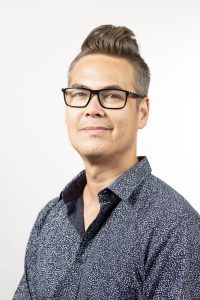The 2023 Australian Political Studies (APSA) Conference starts today and continues until November 30.
Approximately 2000 participants and researchers will gather from around the world, with the conference kicking off with an HDR Workshop on the first day. This session will provide an opportunity for higher degree research students to meet and network, and discuss matters of supervision, research practice, publication, and employment.
Dr Peter Chen, the conference organiser, said the theme of the conference ‘Crisis into Complexity’ was inspired by the pandemic. Research topics “run the full spectrum” from the study of First Nations people, queer people, nuclear weapons and global diplomacy to public management.
“I think the pandemic has shown us that there is something important about coming together, about being able to talk to each other, being in the same space, being able to mix and communicate,” he said.
“We’re facing a whole range of challenges, both as a result of the pandemic itself and the disruption and economic impacts of the pandemic, but also things that have emerged like conflicts in Europe, conflicts in the Middle East.”
Dr Chen teaches media politics, public policy and Australian politics, undergraduate and postgraduate levels, at the University of Sydney School of Social and Political Science. His research interests focus on the relationship between media and politics: with a special interest in new media’s impacts on electoral politics, media regulation, social movements, and the politics of animal protection.

He said this year’s conference was even “more important” for Australian researchers.
“It has always been a bit more expensive for Australians to do academic conferences in general.
“If you are working at a university in Germany and you want to go to an academic conference in the United Kingdom, you could catch the train. But if you’re going there from Australia, you’ve got to spend 24 hours on an international flight.
“And I think to some extent that has made our local conferences more important to the discipline.”
Conferences are crucial for scholars’ peer-review an allow academics to expand their network and “hold each other to account” for the ideas they present.
“Academics do see the peer review process as a critical truth finding technique, and academic conferences are part of that process,” Dr Chen said.
“They can also network, and new research project collaborations are born out of that, new initiatives come out.”
He added that conferences are also in the public interest as a way for taxpayers to ensure researchers are “doing a good job”, and are crucial to combat “disinformation”.
But issues for academia include a lack of media coverage on political science research.
“If you think about your average news bulletin or newspaper, 30 per cent or 50 per cent of it is usually politics stuff. So you would think that theoretically experts on politics should be relatively high profile within the media.
“But by and large, the research we [political scientists] do is very rarely covered in the media,” he said. “We will often be asked to comment, but the actual reporting on new research outputs of political scientists are very rare compared to scientists who study climate or cancer.”
The APSA conference is hosted by the Australian Political Science Association. Similar conferences include the American Political Science Conference and New Zealand Political Studies Conference. The next political science conference in Australia, the Public Policy Network Conference, will be held from 31 January to 2 February 2024.


